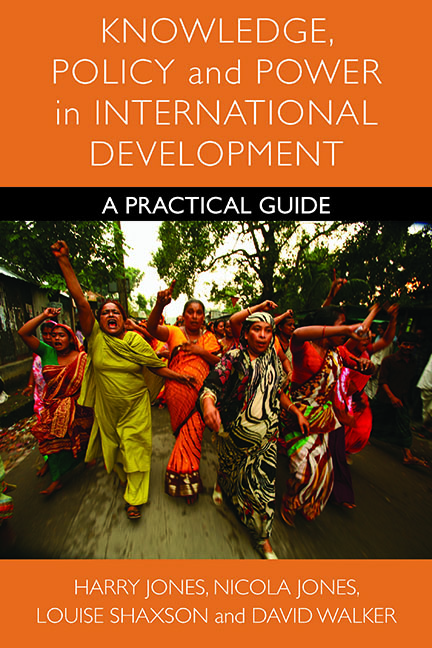Book contents
- Frontmatter
- Contents
- List of tables and figures
- List of acronyms
- Glossary
- Acknowledgements
- one Navigating the Knowledge–Policy Landscape
- two Mapping political context
- three Engaging actors
- four Integrating different types of knowledge
- five Facilitating knowledge interaction
- six Conclusion and policy implications
- References
- Index
one - Navigating the Knowledge–Policy Landscape
Published online by Cambridge University Press: 01 September 2022
- Frontmatter
- Contents
- List of tables and figures
- List of acronyms
- Glossary
- Acknowledgements
- one Navigating the Knowledge–Policy Landscape
- two Mapping political context
- three Engaging actors
- four Integrating different types of knowledge
- five Facilitating knowledge interaction
- six Conclusion and policy implications
- References
- Index
Summary
Remember that all models are wrong: the practical question is how wrong do they have to be to not be useful. (Box and Draper, 1987, p 74)
Understanding the links between knowledge, policy and power in development
Knowledge is increasingly seen as a critical component of development. As early as 1998/99 the World Development Report emphasised the need for greater access to better quality knowledge in addressing development challenges, from infant mortality to agricultural growth. Indeed, the difference knowledge may make to poverty reduction is highlighted by the starkly different development trajectories (measured by per capita gross domestic product (GDP)) of South Korea and Ghana since the 1950s. While the former is now a fully fledged member of the Organisation for Economic Co-operation and Development (OECD) and itself a donor country, the other graduated to lower middle-income country status only in 2011 (see Figure 1.1).
Over the past decade, however, there has been growing recognition by a broad array of development actors that there are no magic bullets to strengthen the knowledge–policy interface; instead, better systems and channels are urgently needed to harness existing and new knowledge sources so as to provide strategic, feasible and timely policy and programme solutions. In particular, academic knowledge can play a useful role in shaping the thinking of policy actors and practitioners over time (Weiss, 1977), while policy research has the potential to have far-reaching impacts on programme design and budget allocations, with tangible impacts for those who are poor and marginalised. A case in point is the rigorous evaluation work carried out around Mexico's conditional cash transfer programme, Progresa/Oportunidades: findings have been utilised to secure greater investments in safety nets for poor people, not only at the national level, but also in similar programmes across Latin America, Asia and Africa. These now reach tens of millions of poor households (Behrman, 2007), and are continuing to expand on account, at least in part, of the robust knowledge base that is being generated on the strengths and weaknesses of many of the programmes (Fiszbein and Schady, 2008).
Such cases of fruitful evidence-informed policy influencing are not the norm, however.
- Type
- Chapter
- Information
- Knowledge, Policy and Power in International DevelopmentA Practical Guide, pp. 1 - 12Publisher: Bristol University PressPrint publication year: 2012



